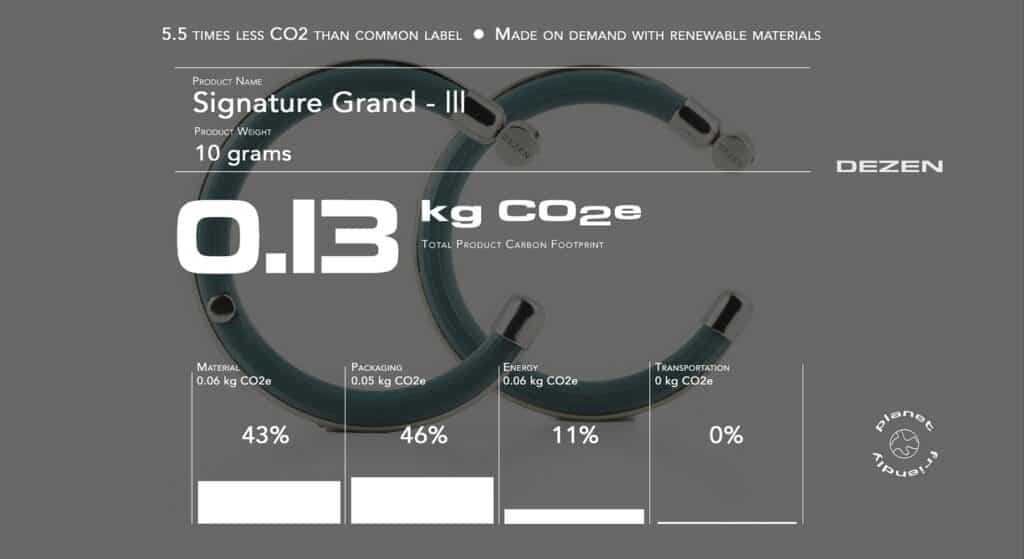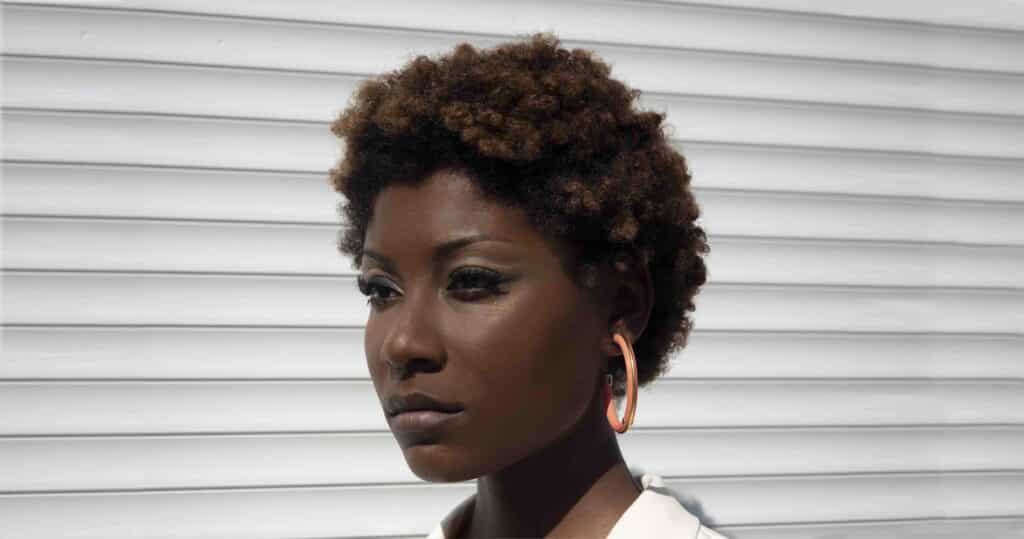
Using Your Dollars to Fight Climate Change
By Anjulina Desai
During the month of May, we are partnering with DEZEN on a campaign where 15% of the proceeds from total purchases will go to Green 2.0. Use code DIVERSEGREEN to support both DEZEN and Green 2.0. Visit the brand here: dezenbrand.com
Anjulina Desai is a co-founder of DEZEN, the first circular fashion accessory brand ensuring sustainability by using renewable, plant-based, petroleum-free materials with zero-waste production made in the U.S. Based in San Francisco, DEZEN uses technology to minimize its impact as a low carbon brand and has won awards for its innovation in design. The company’s mission is to design beautiful, innovative accessories that are respectful to the earth and the people who work with the company. In this guest blog for Green 2.0, Anjulina discusses how consumers can use their wallets to fight for a healthier planet.
Q: What is the difference between the term “sustainability” and “circular”?
To be circular means to think through the entire lifecycle of a product and the impact it has on the planet, its carbon footprint, and the people involved in producing the items. The circular economy is a sustainable system based on nature where “everything is healthy food for something else.” Waste and toxicity are designed out of the system, meaning that products are kept in use as long as possible, you use an efficient approach that limits discarded material, and you work to collect products after they’ve been used to reuse again
A circular economy seeks to rebuild capital whether it’s financial, manufactured, human, social or natural. It changes how value is created and preserved, how production is made more sustainable and which business models are used. To do this successfully, design is at the heart of it all and it requires a redesign at all levels – from the production process to business models, to how cities are planned out. To really be circular, you must rethink your assumptions and change how items are made, used, and shared.
Being sustainable is a broad umbrella that means different things to various interest groups. There are currently no legal guidelines on what you can call a sustainable product. “Greenwashing” is a serious issue with some brands deceptively making you think they are more sustainable than they are. More consumers are demanding their products be sustainably made and use better ingredients/materials and some brands are taking advantage of this trend by using the right buzzwords to make you feel you are making a better choice. To be truly sustainable means engaging in practices that preserve the environment, society, and economy.
Q: Please discuss how the standard linear product cycle has impacted our environment.
The traditional linear economy predominantly in use today follows the “take-make-dispose” philosophy. It assumes there are infinite resources. It does not consider the harm extraction of materials is causing our ecosystems and the impact on our water, air, and soil.
The harm caused ranges from millions of tons of plastic thrown into our oceans, landfills, and sewer systems to the toxic substances seen in animals as well as humans, to the scarcity of many raw materials which may cause geopolitical instability in some parts of the world.
Once an item is sold the brand is no longer responsible for the items they’ve made. Currently, 73% of the world’s clothing ends up in landfills. Now think about all the other products you consume and what happens to them once they are sold. Although DEZEN’s focus is on the fashion industry, being circular is relevant for anything you consume.
With a growing global population, the linear production process will hit a limit on our finite resources and put our planet in jeopardy, therefore it’s imperative we move to a circular system as rapidly as possible.

Q: Why and how did you get involved in the circular fashion industry?
The Founder of DEZEN, Dilek Sezen, comes from the world of high-end luxury jewelry. Five years ago she saw the possibilities of how her industry could improve. The jewelry industry hadn’t changed in generations: they weren’t leveraging new technologies and there was minimal innovation on design and sustainability. Additionally, she and her husband live and love spending time on the water and saw firsthand the impact our current systems are having on the ocean environment.
This started Dilek down a journey of how to continue as a designer creating beautiful accessories but in a more sustainable way. As a result of being near Silicon Valley, she experimented with using safer technology and different bio and plant-based materials to create her pieces.
I know Dilek from her luxury jewelry days and when I met her for coffee to catch up after having lost touch for a while, she shared her business pivot and asked for my feedback. She was being classified as a tech company now that she was using technology to create her pieces. As a tech entrepreneur who has worked on banking, mobile and SaaS companies, I was surprised to see how many opportunities there were for the fashion industry to leverage technology. And the rest is history – that one coffee led to many more conversations and me coming on board DEZEN and working in the fashion industry for the very first time.
Q: Many times individuals feel powerless in the face of the climate crisis. Please name four actions consumers can take now to actively fight climate change.
In addition to voting for and calling your political representatives to support good climate change policies these are actions you can take every day. Knowing that 60% of an individual’s carbon footprint is linked to consumption you can look for low carbon brands such as DEZEN and know your change in purchasing makes a difference.
- Vote With Your Wallet. Support brands and businesses that use renewable resources and collect back their products. For brands you like who aren’t as sustainable, ask/email about their circular and sustainable offerings. Most companies track this data and if they see an increase in customers asking for circular products it will nudge them to move faster.
- Replace Single Use Plastic and One Time Use Options. Bring your own water/beverage bottle, buy whole fruit/veggies/produce, choose glass and aluminum containers as they are easier to recycle, buy items in compostable packaging, bring your own bags, etc.
- Reduce Your Carbon Footprint. Where are your products coming from? The more local the provider, the lower carbon footprint from transportation. Some products label their carbon footprint so you can compare between products. Some brands offset their carbon footprint. My favorite is the complete redesign of a product to lower their carbon footprint. Several cleaning products do this by selling concentrated solutions and you add your own water thereby reducing the size, weight and packaging that needs to be transported.
- Educate Yourself. There are a plethora of documentaries you can easily access to learn more about what is being done and what you can do. A few to start with: Kiss the Ground on Netflix – Learn how regenerative agriculture can help with CO2, The Ugly Truth of Fast Fashion (Hasan Minaj – Patriot Act) – Sums up the world of fashion in a quick and funny way, Silicon Mountain – A short film about E-Waste, and Plastic Wars –The plastic pollution, a planetary nightmare.
Q: What else would you like our audience to know about DEZEN and the circular fashion economy?
We’re excited to announce that we just won two Silver Awards for the 2021 International Design Awards (IDA) in Fashion Design Accessories! We won silver in the category of sustainable and alternative materials and the second silver for personal accessories.

If you’re curious to see how you’ll look in the Juicy Grapefruit Signature Grand hoop earrings (pictured at the left) which were highlighted in the IDA Silver Award, check out our Snapchat filter! Snap a picture and tag us!

To learn more about DEZEN visit https://dezenbrand.com/ and follow the company on Instagram at dezen.brand.
